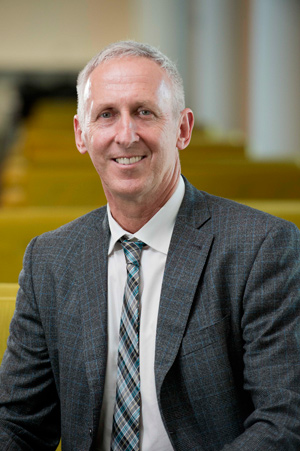Unfortunately the UC media release announcing the review (appended), doesn't explain what "Contingent-Continuing" employment is. Andrews, Bare, Bentley, Goedegebuure , Pugsley and Rance (p 15, 2016) offer a description of contingent continuing employment as "continuing employment but with easier termination arrangements":
"Fixed-term employment is almost invariably used for academic staff funded by research grants, although larger research-based universities have recognised the negative impact of contingent employment on researchers, and have introduced a “contingent continuing” employment category that provides continuing employment but with easier termination arrangements in the event that the researcher misses out on being engaged under a subsequent grant. The severance payments for this form of employment are also lower than the standard academic redundancy payment entitlements"
From: Andrews, Bare, Bentley, Goedegebuure , Pugsley and Rance (p 15, 2016)Putting it more crudely, this is a form of indefinite temporary employment. While the uncertainty over research grants to fund employees has been the primary rationale for not employing academics permanently, the uncertainty around the need for teaching staff may also be a factor. Australian universities have experienced a boom in enrollments, due to government funding for domestic students, and demand from international students. However, neither of these sources of income are certain to continue into the future. Also the use of new teaching techniques and educational technology, are changing the number of teaching staff required, and their skills. Most academics currently at Australian universities are not trained or qualified to teach in this new environment.
Dr Inger Mewburn (ANU), has proposed a study into the nature and extent of academic work. Such a study would be useful for informing the UC review, as well as likely future government inquires into the Australian university system.
'University of Canberra
Media Release
28 March 2019
VICE-CHANCELLOR ANNOUNCES INDEPENDENT ASSISTANT PROFESSOR PROGRAM REVIEW
The University of Canberra Vice-Chancellor and President, Professor Deep Saini, has today announced an independent review of Contingent-Continuing academic employment—commonly referred to as the Assistant Professor program—to evaluate and improve the program.
Assistant professors comprise approximately 22.5 per cent of the academic staff at the University of Canberra through a unique program in Australia. The scheme allows assistant professors to fast track to promotion to associate professor within seven years via two performance reviews.
The independent review will aim to ensure that participants are valued, supported, professionally developed and well managed to continue to be successful.
“Whilst the basis of the contract is sound and has delivered success for many of our academic staff in fast-tracking their careers, we endeavour to deliver the best possible experience and results in this Australia-first program—both for the assistant professors and the students they teach,” said Professor Saini.
“I have personally consulted with many assistant professors in the program to hear their suggestions on how the implementation and experience of the program can be improved.”
“We have used input from the assistant professors, staff and the National Tertiary Education Union to develop the scope of the review.”
The Review Panel consists of four members, including three external independent members and one internal member.
Professor of Chemistry and Senior Deputy Vice Chancellor and Vice President at University of Newcastle, Kevin Hall, will act as chair with Professor of Psychology and Education Director at University of Sydney, Marie Carroll, as member, and Workplace Relations and Employment Law specialist, Dr Graham Smith, as an external consultant to the panel.
Professor of Biomedicine at University of Canberra Reena Ghildyal will be an internal consultant, having personal experience of the Assistant Professor program at the University of Canberra. The scope of the review includes, but is not limited to:
The Review will be provided to the Vice-Chancellor within 12 weeks of the panel commencing. '
- Examining new policy and procedures, terms and conditions and compliance with legislation;
- Attracting the right talent for successful outcomes;
- Frameworks for review and promotion;
- Supervision and mentoring, including appropriate training for supervisors and managers;
- Assessing if workload and performance-based remuneration encourages work/life balance;
- Examine the success of the scheme from talent attraction, development and retention;
- Ensure diversity, equity, access and inclusion;
- Highlight the positive outcomes and identify the areas for improvement.
From: Media and Communication, University of Canberra, 28 March 2019
Reference
Andrews, S., Bare, L., Bentley, P.,
Goedegebuure, L., Pugsley, C., & Rance, B. (2016). Contingent academic employment in Australian universities. LH Martin Institute. URL https://melbourne-cshe.unimelb.edu.au/__data/assets/pdf_file/0009/2564262/2016-contingent-academic-employment-in-australian-universities-updatedapr16.pdf

No comments:
Post a Comment